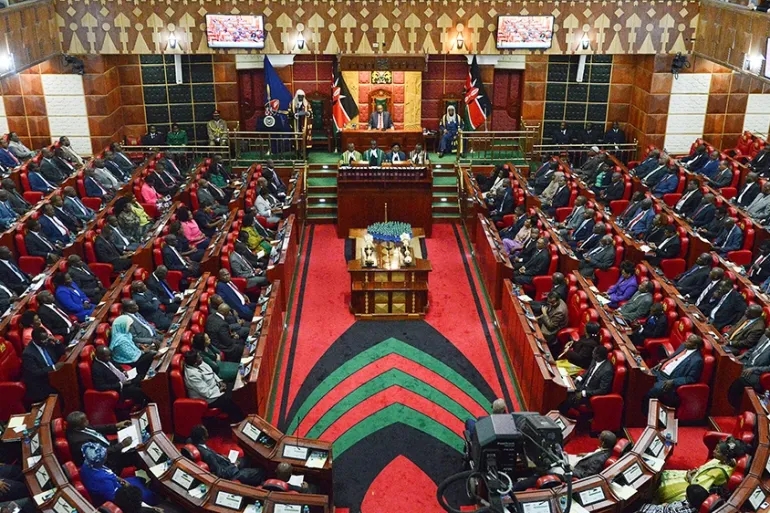Political analyst Mutahi Ngunyi has come to the defence of some of the new tax measures proposed in the Finance Bill, 2024.
In his opinion, Kenyans have no cause to worry since most tax proposals in the Bill seemingly target the rich in society.
He particularly took issue with an overwhelming majority of Kenyans opposed to the 2.5 per cent motor vehicle tax yet they don't own cars.
“Dear Hustlers: What is your problem? Only 1.2 million Kenyans out of 52 million own cars. 40 million of you will never own a car. Question: Why defend car owners if you have no car?” he asked in a message on X.
Further, Ngunyi said ordinary Kenyans do not drink bottled water or use tea bags.
“Also, do Hustlers drink bottled water or use tea bags? No! Ruto is taxing the rich. Is this wrong,” he posed.
A survey released by Infotrak Research and Consulting on Thursday showed an overwhelming majority of Kenyans are opposed to the introduction of the new motor vehicle tax.
The survey said 81 per cent of the respondents were opposed to the introduction of the 2.5 per cent tax of the value of the vehicle to be collected by the insurer.
The study said only eight per cent of respondents supported the tax measure while 11 per cent were not sure or did not know.
Further, the survey said majority of Kenyans (83 per cent) are opposed to additional levy on environment-unfriendly products such as batteries, tyres, phones and ICT equipment.
It said only six per cent supported the additional levy while 11 per cent were not sure.
The survey was conducted between May 23 to 29 among 1,700 respondents aged above 18 years
The study had a +/-2.53 per cent margin of error and 95 per cent degree of confidence.













